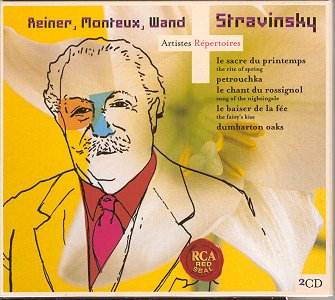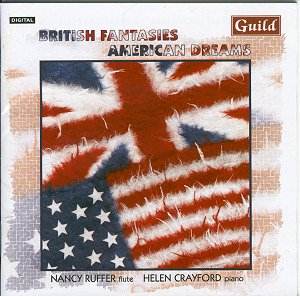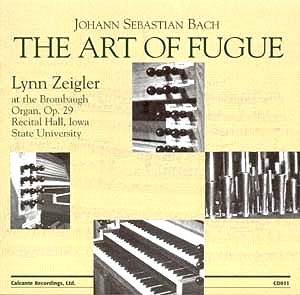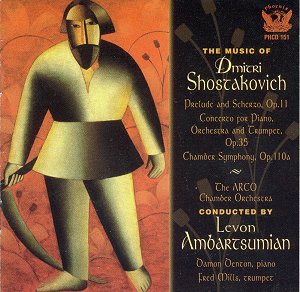 Composer: Alexander Scriabin
Composer: Alexander Scriabin
Works: Piano Concerto in F sharp minor, Op. 20; 3 Pièces, Op. 2; 2 Nocturnes, Op. 5; 5 Préludes, Op. 16; 2 Poèmes, Op. 32; Waltz in A flat major, Op. 38; 8 Études, Op. 42; 3 Morceaux, Op. 52; 2 Pièces, Op. 57; Feuillet d’Album, Op. 58; 2 Pièces, Op. 59; 2 Danses, Op. 73; 5 Préludes, Op. 74; Vers la flamme, Op. 72; Sonata No. 10, Op. 70; 2 Poèmes, Op. 71; 2 Poèmes, Op. 69; 2 Préludes, Op. 67; 2 Poèmes, Op. 63; Poème-Nocturne, Op. 61; Sonata No. 6, Op. 62; 3 Études, Op. 65
Performers: Roger Woodward, piano; Sydney Symphony Orchestra; Edo de Waart, conductor
Recording: Recorded 1991/1999, Eugene Goossens Hall/Sydney Opera House Concert Hall, Australia
Label: ABC Classics
Alexander Scriabin’s oeuvre, particularly his piano compositions, presents a captivating trajectory from the early Romantic influences of Tchaikovsky and Chopin to his later, more enigmatic and mystical phases. This two-disc set showcases the breadth of Scriabin’s creativity, capturing both the youthful exuberance of his early works and the profound complexity of his later compositions. The juxtaposition of the Piano Concerto in F sharp minor with a substantial selection of solo piano works allows listeners to witness the evolution of Scriabin’s musical language, which ultimately sought transcendence through sound.
Roger Woodward’s interpretation is a compelling synthesis of technical prowess and interpretative depth. His approach to the early 3 Pièces, Op. 2, particularly the Etude in C sharp minor, reveals a sensitivity to the youthful emotions embedded within these lines, which resonate with a surprising maturity given the composer’s tender age of fifteen. Woodward’s touch is deft yet expressive, breathing life into the fragile melodies while maintaining clarity in the harmonic texture. The second piece, a Prélude, benefits from Woodward’s ability to distill its brevity into a moment of poignant beauty, a quality that is echoed throughout the disc.
As we progress to the Piano Concerto, Woodward’s nuanced phrasing shines particularly in the first movement, where he eschews overt bravura in favor of a delicate, almost introspective dialogue with the orchestra. Edo de Waart leads the Sydney Symphony Orchestra with a keen sense of balance, allowing the piano’s voice to emerge distinctly from the orchestral fabric. The interplay between orchestra and soloist is particularly notable in the second movement, a set of variations that unfold with a charming grace, underscored by Woodward’s ability to navigate the intricate passages with both finesse and emotional resonance. The finale, while demanding, is executed with an awareness that avoids mere display, turning the virtuosic demands into a cohesive expression of Scriabin’s evolving musical identity.
The recording quality is commendable, with a clear and spacious sound that captures the nuances of both the solo piano and the orchestral accompaniment. The engineering effectively preserves the dynamic range of Woodward’s performance, from the intimate whispers of the early works to the fiery climaxes found in the later pieces. While the recordings span several years, the consistency in sound quality ensures that listeners are not distracted by any potential discrepancies in the acoustic environment.
When compared to other recordings, such as Konstantin Scherbakov’s interpretation of the Piano Concerto on Naxos, Woodward’s performance stands out for its lyrical expressiveness and emotional depth. Scherbakov’s reading is also compelling, yet Woodward’s interpretation is imbued with a kind of poetic urgency that resonates deeply, particularly in the context of Scriabin’s later, more complex works.
Roger Woodward’s two-disc set is an essential contribution to the recorded legacy of Scriabin’s piano music. His ability to traverse the wide spectrum of the composer’s emotional landscape—from the youthful innocence of the early works to the profound introspection of the later pieces—makes this collection a valuable resource for both the casual listener and the serious scholar of Scriabin’s music. This exploration not only highlights Woodward’s artistry but also illuminates the transformative journey of one of the early 20th century’s most enigmatic composers.



